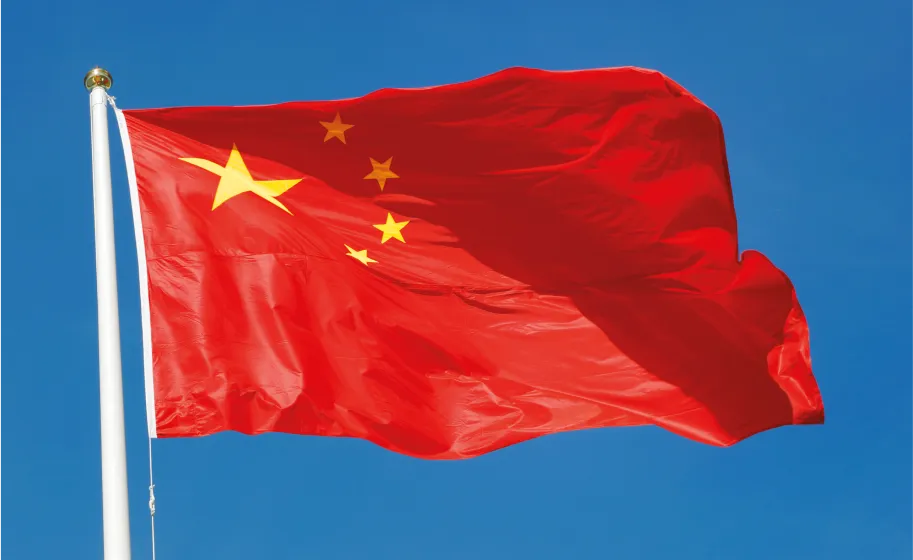Analysis of China’s role in global economic governance
The China’s rapid economic ascent has raised questions as to how it is reshaping the international order. This is already affecting international trade agreements and monetary cooperation. In global development, aid lending is increasingly contested between the US and China. This Focus Group maps China’s role in global economic governance and the multilateral development banks in particular.

Focus Group: China in Global Economic Governance
Prof. Susan Park (University of Sydney), Alumna Hans Fischer Senior | Julia Esser-Grimm (TUM), Doctoral Candidate | Host: Prof. Eugénia da Conceição-Heldt (TUM)
(Image: University of Sydney)
The rapid rise of China’s economic and political influence is changing the configuration of global economic governance. In some cases, Chinese initiatives have improved and complemented global governance structures, rather than fundamentally altering and undermining them. In other cases, the political status quo endures. This project examines China’s role in global economic governance, specifically pertaining to its impact and influence on international institutions. Until recently, the rising economic power of China, ahead of other rising powers such as India and Brazil, has not been matched by a reconfiguration of the global economic order to better accommodate their new financial and political weight through institutional reforms. This misalignment between representation and economic weight has led to China’s contestation and dissatisfaction with the liberal international order (LIO) comprised of formal inter-governmental organizations and informal institutions. This discontent culminated in the creation of new international organizations (IOs) – including the Asian Infrastructure Investment Bank (AIIB) and the New Development Bank (NDB) – by rising powers, under Chinese, Indian, and Brazilian leadership, respectively. Until now, scholars have focused on theorizing the impact of China on the international order without specific knowledge and understanding of how international institutions operate. The Focus Group is interested in providing a detailed analysis of how China is operating within international institutions, such as the multilateral development banks, to better understand how well China’s actions are explained by dominant theories regarding its preference for maintaining or changing the international system.
The research conducted sought to identify the main activities of China within global economic governance. Currently, scholars tend to identify China’s activities as either supporting or undermining the Western liberal international order. Our Focus Group recognizes that China’s activities, and those in response to China, are reconfiguring the international order. This is not an either / or proposition; it is both / and. In other words, even when China is engaging in cooperation, this can still reshape international institutions such as the World Trade Organization and the Paris Club. The research highlights instead a continuum of activity, from limited support and limited contestation to robust cooperation and existential challenge. Limited support refers to a mode of engagement that is supportive but that requires fewer resources and less investment than the robust cooperation mode. China accepts the rules, norms, and principles of an existing global economic institution. However, it is not willing to contribute substantially to providing resources, enforcing rules, deepening cooperation, or improving institutional performance [1]. Limited contestation is where China accepts the broad thrust of cooperation but contests specific rules for how it is being enacted or the realm in which the rules are being applied. Robust cooperation means that China engages in global economic institutions in a supportive way by accepting underlying rules, norms, and principles. We see this mode of engagement in multilateral development lending, where China took the lead in creating the Asian Infrastructure Investment Bank and making extensive resources available to support this new multilateral organization [2]. Existential challenge defines a mode of engagement that questions and rejects the purposes, rules, norms, and principles of a global economic institution. This mode is evident when China’s actions challenge, undermine, and eventually replace existing multilateral governance structures. In this way, China acts as a disruptor by explicitly refusing to join or comply with the rules of an existing IO [1]. This continuum clarifies what drives China’s interactions in multilateral fora and how this contributes to the debate over the liberal international order. Such analytical categories provide greater utility for understanding China’s behavior beyond the increasingly simple binary of for or against the liberal international order, which itself has become highly politicized.
The Focus Group undertook two workshops at the Technical University of Munich (one virtual in 2021 and one in-person in 2023) and a panel at the 2023 annual International Studies Association conference in Montreal, Canada. More dissemination activities would have been possible except for the border closures during the global pandemic.
The results of the workshops have culminated in a submission of a special issue [1] submitted to the international peer-reviewed journal the Review of International Political Economy. The special issue is still under review at this time.
The major result of this research is an attempt to shape the debate in international relations to go beyond simply binaries of how China’s economic governance activities are viewed, and to better identify how its activities are shaping global economic institutions including the World Trade Organization, the International Monetary Fund, and the World Bank. The significance of the research is to highlight that political posturing portraying China as either good or bad overlooks the much more complicated picture of how China both supports and undermines global institutions for its own benefit. The final outcomes of the project will be used to inform the scholarly community and policy makers of the importance of working with Chinese counterparts in meaningful ways to establish the means for cooperation and to build toward supporting an inclusive international economic order. Future research will be needed to advance better understanding of China’s intentions in international monetary relations, development finance, and environmental governance [3].
[1]
Heldt, E., Schmidtke, H. & Serrano, O. Multilateralism à la Carte: China’s Engagement in Global Economic Institutions. Review of International Political Economy (under review, 2023).
[2]
Heldt, E. & Schmidtke, H. Explaining Coherence in International Regime Complexes: How the World Bank Shapes the Field of Multilateral Development Finance. Review of International Political Economy 26(6), 1160-1186 (2019).
[3]
Park, S. (2023).
Selected publications
- Park, S. Meeting in the Middle? Multilateral Development Finance, China, and Norm Harmonization. Asia Policy 18(4), 61-70 (2023). www.doi.org/10.1353/asp.2023.a911619.
- Gunaydin, E. & Park, S. Accountability Enablers? The Role of Transnational Activism in the Use of the Multilateral Development Bank Grievance Mechanisms. Policy and Society (2023). www.doi.org/10.1093/polsoc/puad014.
- Park, S. The African Development Bank and the Accountability Policy Norm: Endogenous Change, Norm Conformance, and Regime Complex Coherence. Global Governance 26(1), 61-84 (2023). www.doi.org/10.1163/19426720-02901003.
- Park, S. The Good Hegemon: United States Power, Accountability as Justice, and the Multilateral Development Banks. Oxford: Oxford University Press (2022).
- Park, S. Policy Norms, the Development Finance Regime Complex, and Holding the EBRD to Account, Global Policy 12(4), 90-100 (2021). www.doi.org/10.1111/1758-5899.12881.
